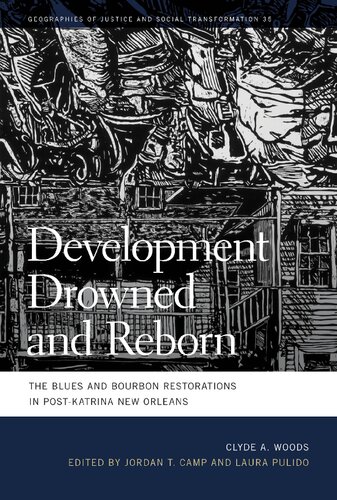

Most ebook files are in PDF format, so you can easily read them using various software such as Foxit Reader or directly on the Google Chrome browser.
Some ebook files are released by publishers in other formats such as .awz, .mobi, .epub, .fb2, etc. You may need to install specific software to read these formats on mobile/PC, such as Calibre.
Please read the tutorial at this link: https://ebookbell.com/faq
We offer FREE conversion to the popular formats you request; however, this may take some time. Therefore, right after payment, please email us, and we will try to provide the service as quickly as possible.
For some exceptional file formats or broken links (if any), please refrain from opening any disputes. Instead, email us first, and we will try to assist within a maximum of 6 hours.
EbookBell Team

4.4
42 reviewsDevelopment Drowned and Reborn is a “Blues geography” of New Orleans, one that compels readers to return to the history of the Black freedom struggle there to reckon with its unfinished business. Reading contemporary policies of abandonment against the grain, Clyde Woods explores how Hurricane Katrina brought long-standing structures of domination into view. In so doing, Woods delineates the roots of neoliberalism in the region and a history of resistance.
Written in dialogue with social movements, this book offers tools for comprehending the racist dynamics of U.S. culture and economy. Following his landmark study, Development Arrested, Woods turns to organic intellectuals, Blues musicians, and poor and working people to instruct readers in this future-oriented history of struggle. Through this unique optic, Woods delineates a history, methodology, and epistemology to grasp alternative visions of development.
Woods contributes to debates about the history and geography of neoliberalism. The book suggests that the prevailing focus on neoliberalism at national and global scales has led to a neglect of the regional scale. Specifically, it observes that theories of neoliberalism have tended to overlook New Orleans as an epicenter where racial, class, gender, and regional hierarchies have persisted for centuries. Through this Blues geography, Woods excavates the struggle for a new society.